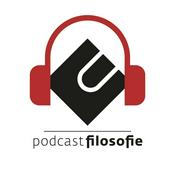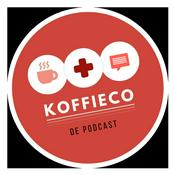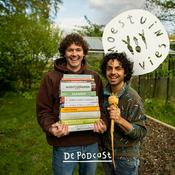Self-Study Korean Podcasts for Beginners - KIIP Level 1
Korean Topik

Nieuwste aflevering
Beschikbare afleveringen
5 van 18
- KIIP 1: Unit 18–Essential Words and Phrases about Life in Korea🎙️ Welcome to the Self-Study Korean Podcast, your guide to mastering the Korean language and culture.In today’s episode, we’re exploring Unit 18, which focuses on essential vocabulary and phrases about life in Korea. This lesson will help you talk about:✅ Daily life in Korea and common activities✅ Public transportation and local services✅ Education and healthcare in Korea________________________________________Visit our website for more details:KIIP Level 1: Unit 18–Essential Words and Phrases about Korean Life________________________________________Essential VocabularyLife in Korea (한국 생활) 🇰🇷• 교통 – Transportation• 대중교통 – Public transportation• 수단 – Means• 이용하다 – To use• 대중교통 수단을 이용하다 – To use public transportation• 편하다 – Comfortable• 택시 잡다 – To hail a taxi• 교통 카드 – Transportation card• 익숙하다 – To be accustomed• 평일 – WeekdayEducation (교육) 🎓• 고등학교 – High school• 졸업하다 – To graduate• 입학하다 – To enroll• 여름방학 – Summer vacation• 겨울방학 – Winter vacation• 방학이 있다 – To have a vacationHealth and Public Services (건강과 공공서비스) 🏥• 외국인 등록증 – Alien registration card• 필요하다 – To need• 외국인 등록증이 필요하다 – To need an alien registration card• 건강 보험 – Health insurance• 점심시간 – Lunchtime• 의식주 – Food, clothing, and shelter• 진료하다 – To provide medical treatmentNeighborhood and Local Services (동네) 🏡• 배달 – Delivery• 24시간 배달 – 24-hour delivery• 24시간 배달이 되다 – To have 24-hour delivery• 팔다 – To sell• 쓰레기봉투를 팔다 – To sell garbage bags• 문을 닫다 – To close (a store or building)• 문을 열다 – To open (a store or building)• 약을 팔다 – To sell medicine• 도로 – Road• 자전거 도로 – Bicycle road• 전용 – Exclusive use• 차로 – Lane• 버스 전용 차로 – Bus-only lane• 팥빙수 – Korean shaved ice dessert• 특징 – CharacteristicKey Phrases to Practice🎙️ Now, let’s practice some useful phrases that will help you confirm information, describe situations, and ask about services in your neighborhood. Listen and repeat after me!Confirmation with 지요?오늘 날씨가 많이 덥지요?(The weather is very hot today, isn’t it?)– 네, 정말 더워요.(Yes, it’s really hot.)🎙️ You can use this pattern for other weather conditions:오늘 비가 많이 오지요? (It’s raining a lot today, isn’t it?)– 네, 우산이 필요해요. (Yes, you need an umbrella.)여보세요. 거기 대한병원이지요?(Hello, is this Daehan Hospital?)– 네, 맞습니다.(Yes, it is.)🎙️ You can use this when calling other places: 여보세요. 거기 서울 도서관이지요? (Hello, is this Seoul Library?)– 네, 맞아요. (Yes, that’s correct.)Describing and Contrasting with 는데한국어 생활이 어때요?(How’s life in Korea?)– 조금 힘든데 재미있어요.(It’s a bit tough, but fun.)밤 12시에 지하철은 다니는데 버스는 안 다녀요.(The subway runs at midnight, but buses don’t.)한국에는 산이 많은데 제 고향에는 산이 적어요.(Korea has many mountains, but my hometown has few.)🎙️ You can try describing differences between places as follows:서울에는 사람이 많은데 내 고향에는 사람이 적어요.(Seoul has many people, but my hometown has few.)Neighborhood and Services우리 동네 은행은 주말에 문을 열어요.(The bank in our neighborhood is open on weekends.)🎙️ You can replace 은행 (bank) with other places:우리 동네 편의점은 24시간 문을 열어요. (The convenience store in our neighborhood is open 24 hours.)쓰레기봉투를 어디에서 살 수 있어요? (Where can I buy garbage bags?)- 편의점에서 살 수 있어요. (You can buy it at convenient store.)24시간 배달이 돼요? (Is 24-hour delivery available?)- 네, 배달이 돼요. (Yes, it is.)🎙️ Great job! Keep practicing these phrases in daily conversations, and you’ll feel more confident using Korean in real-life situations.Quiz Time!Question 1:How do you say “Is this Daehan Hospital?” in Korean?🎙️ The answer is: 여보세요. 거기 대한병원이지요?Question 2:How do you say “Korea has many mountains, but my hometown has few.” in Korean?🎙️ The answer is: 한국에는 산이 많은데 제 고향에는 산이 적어요.Question 3:How do you say “Don’t enter the bus-only lane.” in Korean?🎙️ The answer is: 버스 전용 차로에 들어가지 마세요.🎙️ How did you do? Keep practicing, and soon you’ll feel confident using these phrases in real-life situations!--------17:42
- KIIP 1: Unit 17–Essential Words and Phrases about Public Places and Activities🎙️ Welcome to the Self-Study Korean Podcast. In today’s episode, we’ll explore Unit 17, where we focus on vocabulary and phrases related to public places and activities. This lesson will help you navigate different locations, describe activities, and follow public rules in Korean.________________________________________Visit our website for more details:KIIP Level 1: Unit 17 – Essential Words and Phrases about Public Places and Activities________________________________________Essential Vocabulary🎙️ Let’s start with some important vocabulary about public places, activities, and directions.Public Places (공공장소) 🏢• 은행 – Bank• 백화점 – Department store• 주차장 – Parking lot• 박물관 – Museum• 경찰서 – Police station• 주민 센터 – Community center• 우체국 – Post office• 공원 – Park• 국립공원 – National park• 동물원 – Zoo• 공연장 – Performance venue• 미술관 – Art museum• 편의점 – Convenience store🎙️ These words will help you navigate the city and ask for locations in Korean.Activities at Public Places (공공장소에서 활동) 🏛️• 환전하다 – To exchange money• 선물을 사다 – To buy a gift• 주차하다 – To park• 역사 공부를 하다 – To study history• 수영반에 등록하다 – To register for a swimming class• 소포를 보내다 – To send a package• 잔디밭에 들어가다 – To enter the grass field• 뛰다 – To run• 쓰레기를 버리다 – To throw away trash• 꽃을 만지다 – To touch flowers• 사진을 찍다 – To take a photo• 담배를 피우다 – To smoke🎙️ These verbs will help you talk about what you’re doing at different public places.Directions and Locations (방향과 위치) 🗺️• 오른쪽 – Right• 왼쪽 – Left• 위층 – Upstairs• 아래층 – Downstairs• 지하층 – Basement• 옆 – Beside• 뒤 – Behind• 안 – Inside🎙️ These direction words will help you ask for and give directions in Korean.Key Phrases to Practice🎙️ Now, let’s practice some useful phrases that will help you navigate public places, ask for directions, and follow rules.Navigating Public Places은행에서 뭐 할 거예요?)(What will you do at the bank?– 환전할 거예요.(I will exchange money.)🎙️ You can replace 은행에서 (at the bank) with other public places, for example:우체국에서 뭐 할 거예요? (What will you do at the post office?)→ 소포를 보낼 거예요. (I will send a package.)주민 센터가 어디에 있어요?(Where is the community center?)– 오른쪽으로 조금만 가세요.(Go a little to the right.)🎙️ You can use this pattern for other places:박물관이 어디에 있어요? (Where is the museum?)→ 왼쪽으로 가세요. (Go to the left.)주차장은 어디에 있어요?(Where is the parking lot?)– 건물 뒤에 있어요. 오른쪽으로 가세요.(It’s behind the building. Go to the right.)🎙️ This phrase helps you describe locations in more detail.수영반 등록은 어디에서 해요?(Where can I register for the swimming class?)– 저기 사무실에서 해요. 왼쪽으로 가세요.(Over there in the office. Go to the left.)🎙️ This phrase is useful when you need to find a service or registration location.Rules and Prohibitions공원에서 잔디밭에 들어가지 마세요.(Don’t enter the grass field in the park.)공연장 안에서 사진을 찍지 마세요.(Don’t take photos inside the performance venue.)시험 시간에 말하지 마세요.(Don’t talk during the exam.)사무실에서 담배를 피우지 마세요.(Don’t smoke in the office.)🎙️ These phrases help you follow public rules and restrictions in Korean.Quiz Time!Question 1:How do you say “Go to the left.” in Korean?🎙️ The answer is: 왼쪽으로 가세요.Question 2:How do you say “Don’t take photos in the performance venue.” in Korean?🎙️ The answer is: 공연장 안에서 사진을 찍지 마세요.Question 3:How do you say “The restaurant is on the 7th floor.” in Korean?🎙️ The answer is: 식당은 7층에 있어요.________________________________________Conclusion🎙️ That’s all for today’s episode on Unit 17 – Public Places and Activities! 🎙️ Be sure to review this lesson and practice using these words and phrases in everyday situations. Visit KoreanTopik.com for more learning resources, and stay tuned for our next episode!🎙️ Thank you for listening, and as always, happy studying!--------15:54
- KIIP 1: Unit 16–Essential Words and Phrases about Health and Hospital🎙️ Welcome to the Self-Study Korean Podcast, your guide to mastering the Korean language and culture. In today’s episode, we’ll explore Unit 16, where we focus on health and hospital-related vocabulary and phrases. These expressions will help you describe symptoms, seek medical help, and give advice when someone is sick.________________________________________Visit our website for more details:KIIP Level 1: Unit 16–Essential Words and Phrases about Health and Hospital ________________________________________Essential Vocabulary🎙️ First, let’s go over some important body parts, hospital departments, and health-related verbs.Body Parts (몸) 🏥• 눈 – Eye• 귀 – Ear• 이 – Tooth• 코 – Nose• 목 – Neck/Throat• 팔 – Arm• 손 – Hand• 허리 – Waist• 배 – Stomach• 다리 – Leg• 무릎 – Knee• 발 – Foot________________________________________Hospital (병원) 🏥• 병원 – Hospital• 내과 – Internal medicine• 이비인후과 – ENT (Ear, Nose, Throat)• 정형외과 – Orthopedics• 안과 – Ophthalmology (Eye clinic)• 치과 – Dental clinic________________________________________Health-Related Verbs and Expressions 💊• 아프다 – To be sick/hurt• 감기에 걸리다 – To catch a cold• 눈이 아프다 – Eyes hurt• 다리가 부러지다 – To break a leg• 생강차 – Ginger tea• 푹 쉬다 – To rest well• 병원에 가다 – To go to the hospital• 약을 먹다 – To take medicine• 비타민 C – Vitamin C________________________________________Key Phrases to Practice🎙️ Now, let’s practice some useful phrases that will help you describe symptoms, seek help, and give advice.Describing Symptoms and Seeking Help이가 아파요.My tooth hurts.– 그럼, 빨리 치과에 가세요.(Then, go to the dentist quickly.)🎙️ You can replace 이가 아파요 (My tooth hurts) with:배가 아파요. (My stomach hurts.)or눈이 아파요. (My eyes hurt.)________________________________________어제 왜 병원에 갔어요?Why did you go to the hospital yesterday?– 배가 아파서 병원에 갔어요.(I went to the hospital because my stomach hurt.)🎙️ This phrase is useful for talking about past health issues.________________________________________어느 병원에 가요?Which hospital are you going to?– 눈이 아파서 안과에 가요.(I’m going to the eye clinic because my eyes hurt.)🎙️ You can also say:이가 아파서 치과에 가요. (I’m going to the dentist because my tooth hurts.)or감기에 걸려서 내과에 가요. (I’m going to internal medicine because I caught a cold.)________________________________________Giving Advice목이 너무 아파서 잠을 못 잤어요.My throat hurt so much I couldn’t sleep.– 그러면 생강차를 마시는 것이 좋아요.(Then, drinking ginger tea is good.)________________________________________선생님, 오늘 배가 아파서 학교에 못 가요.Teacher, my stomach hurts, so I can’t go to school today.– 그래요? 그러면 빨리 병원에 가는 것이 좋아요.(Really? Then, it’s good to go to the hospital quickly.)🎙️ This phrase can be adapted to other situations, like work or appointments.________________________________________Explaining Situations어제는 피곤해서 집에서 쉬었어요.I was tired yesterday, so I rested at home.저는 감기에 걸려서 약을 먹었어요.I caught a cold, so I took medicine.🎙️ These phrases help you explain why you did something because of health reasons.________________________________________Quiz Time!Question 1:How do you say “I couldn’t sleep because my throat hurt.” in Korean?🎙️ The answer is: 목이 아파서 잠을 못 잤어요.Question 2:How do you say “It’s good to rest well when you’re sick.” in Korean?🎙️ The answer is: 아플 때 푹 쉬는 것이 좋아요.Question 3:How do you say “I caught a cold, so I took medicine.” in Korean?🎙️ The answer is: 감기에 걸려서 약을 먹었어요.🎙️ How did you do? Keep practicing, and soon you’ll feel confident talking about health in Korean!________________________________________🎙️ That’s all for today’s episode on Unit 16 – Health and Hospital! 🎙️ Be sure to review this lesson and practice using these words and phrases in everyday situations. Visit KoreanTopik.com for more learning resources, and stay tuned for our next episode!🎙️ Thank you for listening, and as always, happy studying! 😊🎧--------14:33
- KIIP 1: Unit 15–Essential Words and Phrases about Seasons and Weather🎙️ Welcome to the Self-Study Korean Podcast, your guide to mastering the Korean language and culture. In today’s episode, we’ll explore Unit 15, where we’ll learn essential words and phrases related to seasons and weather.By the end of this episode, you’ll be able to:✅ Talk about the four seasons in Korean.✅ Describe different weather conditions.✅ Make comparisons about the weather between places.📌 This lesson will help you talk about the changing seasons, describe the weather, and express admiration in daily conversations.________________________________________Visit our website for more details:KIIP Level 1: Unit 15– Essential Words and Phrases about Seasons and Weather________________________________________Essential Vocabulary🎙️ First, let’s go over some important words related to seasons and weather.Seasons (계절) 🍂🌞❄️🌸• 봄 – Spring• 여름 – Summer• 가을 – Fall/Autumn• 겨울 – Winter• 따뜻하다 – To be warm• 꽃이 피다 – Flowers bloom• 덥다 – To be hot• 바닷가 – Beach• 쌀쌀하다 – To be chilly• 단풍이 아름답다 – The autumn leaves are beautiful• 춥다 – To be cold• 눈썰매를 타다 – To go sledding• 스키를 타다 – To ski• 사계절 – Four seasonsWeather (날씨) 🌤️🌧️❄️• 안개가 끼다 – To be foggy• 눈이 오다 – To snow• 천둥이 치다 – Thunder strikes• 번개가 치다 – Lightning strikes• 맑다 – To be clear• 구름이 끼다 – To be cloudy• 흐리다 – To be overcast• 비가 오다 – To rain• 바람이 불다 – To be windyOther Useful Words• 인구 – Population• 매우 – Very🎙️ These words will help you describe the weather and seasons in daily conversations.________________________________________Key Phrases to Practice🎙️ Now, let’s practice some useful phrases for talking about the weather and seasons.Talking About the Weather지금 서울 날씨가 어때요?– How is the weather in Seoul right now?– 맑아요.(It’s clear.)요즘 고향 날씨가 어때요?– How’s the weather in your hometown these days?– 요즘은 비가 많이 와요.(It’s raining a lot these days.)러시아 겨울 날씨는 어때요?– How is the winter weather in Russia?– 러시아는 한국보다 추워요.(Russia is colder than Korea.)🎙️ These phrases are very useful when discussing weather conditions with friends or colleagues.________________________________________Expressing Surprise or Admiration🎙️ Sometimes, we want to express admiration or surprise about the weather or the seasons. Try using these phrases!와! 꽃이 많이 피었네요.– Wow! So many flowers have bloomed!우리 가족 사진이에요.– This is my family photo.– 아이가 정말 예쁘네요.(Your child is so pretty!)오늘 한국어 수업이 재미있네요.– Today’s Korean class is fun!🎙️ These expressions help make conversations more natural and engaging!________________________________________Comparing Preferences🎙️ Now, let’s practice making comparisons using "보다" (than).저는 농구보다 축구를 잘해요.– I’m better at soccer than basketball.백화점이 시장보다 옷값이 더 비싸요.– Clothes at the department store are more expensive than at the market.🎙️ Using these comparison phrases makes your conversations more dynamic and detailed.________________________________________Quiz Time!🎙️ It’s Quiz Time! Question 1:How do you say “The autumn leaves are more beautiful than the flowers.” in Korean?🎙️ The answer is: 단풍이 꽃보다 아름다워요.Question 2:How do you say “Wow! It’s very foggy today.” in Korean?🎙️ The answer is: 와! 오늘 안개가 매우 많이 꼈네요.🎙️ Fill in the blank with the correct word!한국은 러시아______ 따뜻해요.(Korea is warmer than Russia.)🎙️ The correct answer is 보다.So, the full sentence is: 한국은 러시아보다 따뜻해요.오늘 날씨가 정말 좋______!(The weather is really nice today!)🎙️ The correct answer is 네요.So, the full sentence is: 오늘 날씨가 정말 좋네요!🎙️ How did you do? Keep practicing, and soon you’ll be comfortable using these expressions in real conversations!________________________________________Conclusion🎙️ That’s all for today’s episode on Unit 15 – Seasons and Weather! 🎙️ Be sure to review this lesson and practice using these words and phrases in real-life conversations. Visit koreantopik.com for more learning resources, and stay tuned for our next episode!🎙️ Thank you for listening, and as always, happy studying! 😊🌸❄️--------15:08
- KIIP 1: Unit 14–Essential Words and Phrases about Scheduling and Appointments🎙️ Welcome to the Self-Study Korean Podcast, your guide to mastering the Korean language and culture. In today’s episode, we’re covering Unit 14, where we’ll talk about scheduling, making appointments, and explaining why you can’t attend plans.By the end of this episode, you’ll be able to:✅ Make and change appointments.✅ Suggest plans using 을까요? (Shall we…?)✅ Explain why you can’t do something using 못 (Cannot).________________________________________Visit our website for more details:KIIP Level 1: Unit 14–Essential Words and Phrases about Scheduling and Appointmentshttps://www.koreantopik.com/2024/12/kiip-level-1-unit-14essential-words-and.html________________________________________Essential Vocabulary🎙️ First, let’s review some important words related to appointments and scheduling.Common Terms 📅• 모임 – Meeting/Gathering• 친구 모임 – Friends’ meeting• 반 모임 – Class meeting• 직장 모임 – Workplace meeting• 약속 – Appointment/Promise• 약속하다 – To make an appointment• 약속을 지키다 – To keep a promise• 약속 시간을 정하다 – To set an appointment time• 약속 장소를 정하다 – To set an appointment place• 약속 장소를 바꾸다 – To change the appointment place• 약속 시간에 늦다 – To be late for an appointmentExplaining Situations 🤒• 일이 많다 – To have a lot of work• 야근을 하다 – To work overtime• 회식이 있다 – To have a company dinner• 몸이 아프다 – To be sick• 가족 모임이 있다 – To have a family gathering• 시험이 있다 – To have an examOther Useful Words• 같이 – Together• 그래서 – So/Therefore• 못 – Cannot• 답장하다 – To reply (to a message)• 새 – New🎙️ These words will help you discuss plans and explain scheduling conflicts with ease!________________________________________Key Phrases to Practice🎙️ Now, let’s practice some key phrases for making plans and explaining why you can’t attend an event.Making Plans 🗓️1. 커피 마실까요?– Shall we drink coffee?– 네, 좋아요. 같이 마셔요.(Yes, that sounds good. Let’s drink together.)2. 내일 몇 시에 만날까요?– What time shall we meet tomorrow?– 11시에 만나요.(Let’s meet at 11.)3. 수업 끝나고 무엇을 할까요?– What shall we do after class?– 같이 숙제를 해요.(Let’s do homework together.)🎙️ Try using Verb + ㄹ/을까요? when suggesting plans!________________________________________Explaining Why You Can’t Keep Plans 🚫4. 어제 등산 갔어요?– Did you go hiking yesterday?– 아니요. 일했어요. 그래서 못 갔어요.(No, I worked. So I couldn’t go.)5. 내일 같이 영화를 보러 갈까요?– Shall we go watch a movie together tomorrow?– 미안해요. 내일 가족 모임이 있어요. 그래서 못 가요.(I’m sorry. I have a family gathering tomorrow, so I can’t go.)6. 왜 밥을 안 먹어요?– Why aren’t you eating?– 배가 아파요. 그래서 밥을 못 먹어요.(My stomach hurts, so I can’t eat.)7. 오늘 같이 쇼핑할까요?– Shall we go shopping together today?– 미안해요. 오늘은 약속이 있어요.(I’m sorry. I have an appointment today.)🎙️ 못 + Verb is very useful for explaining why you can’t do something. Use it to politely decline invitations or explain situations.________________________________________Quiz Time!🎙️ Alright, it’s Quiz Time! I’ll say a sentence in English, and your task is to translate it into Korean. I’ll pause after each question to give you time to think. Ready? Let’s go!Question 1: How do you say “Shall we meet at the park tomorrow?” in Korean?🎙️ The answer is: 내일 공원에서 만날까요?Question 2: How do you say “Why didn’t you attend the meeting?” in Korean?🎙️ The answer is: 왜 모임에 안 갔어요?Question 3: Fill in the blank:• 오늘 같이 영화를 ______? (Shall we watch a movie together today?)🎙️ The answer is: 볼까요?• 배가 아파서 점심을 ______. (My stomach hurts, so I couldn’t eat lunch.)🎙️ The answer is: 못 먹었어요.🎙️ How did you do? Keep practicing, and you’ll improve quickly!________________________________________🎙️ That’s all for today’s episode on Unit 14 – Scheduling and Appointments! You’ve learned:✔️ How to make plans and appointments✔️ How to politely decline plans🎙️ Be sure to review this lesson and practice making plans in Korean. Visit KoreanTopik.com for more learning resources, and tune in next time for another useful lesson!🎙️ Thank you for listening, and as always, happy studying!--------15:25
Meer Onderwijs podcasts
Trending Onderwijs -podcasts
Over Self-Study Korean Podcasts for Beginners - KIIP Level 1
Welcome to Self-Study Korean Podcasts for Beginners - KIIP Level 1, the ultimate podcast for beginners learning Korean! In this 18-episode series, we’ll guide you through the essential vocabulary, phrases, and grammar needed to start speaking Korean confidently. Whether you’re a complete beginner or refreshing your basics, this series covers everything from introductions, daily activities, and essential conversation skills. Each episode breaks down key concepts in a clear, easy-to-understand way, with practical tips and quizzes to reinforce your learning. Join us today at koreantopik.com
Podcast websiteLuister naar Self-Study Korean Podcasts for Beginners - KIIP Level 1, Dai Carter: Missie Mentale Kracht en vele andere podcasts van over de hele wereld met de radio.net-app

Ontvang de gratis radio.net app
- Zenders en podcasts om te bookmarken
- Streamen via Wi-Fi of Bluetooth
- Ondersteunt Carplay & Android Auto
- Veel andere app-functies
Ontvang de gratis radio.net app
- Zenders en podcasts om te bookmarken
- Streamen via Wi-Fi of Bluetooth
- Ondersteunt Carplay & Android Auto
- Veel andere app-functies


Self-Study Korean Podcasts for Beginners - KIIP Level 1
Scan de code,
download de app,
luisteren.
download de app,
luisteren.





























